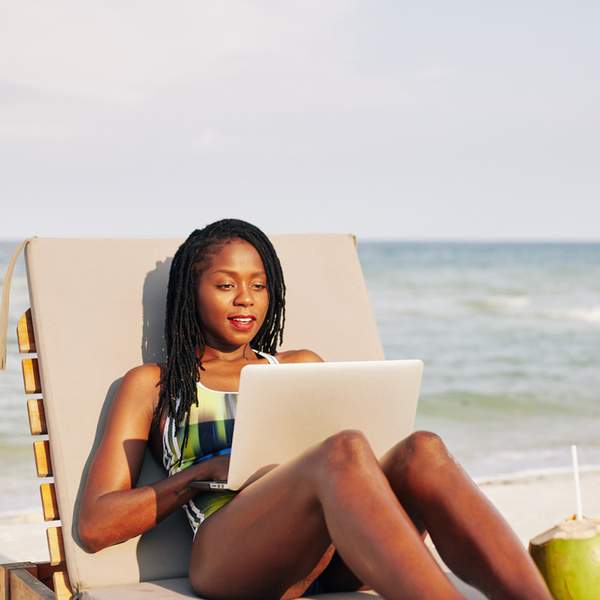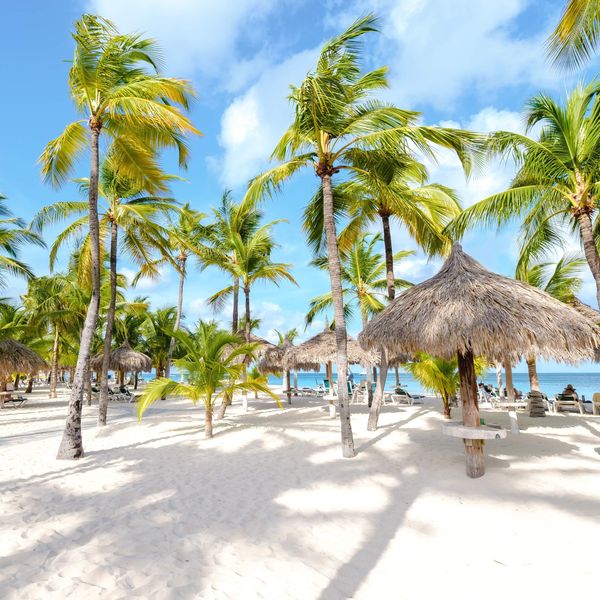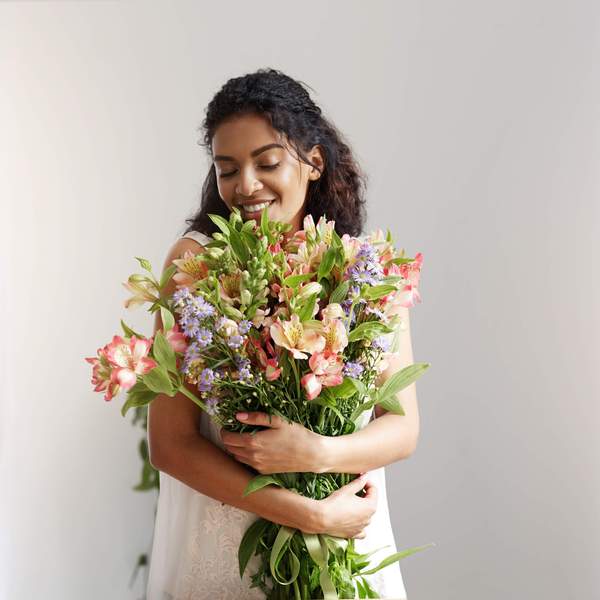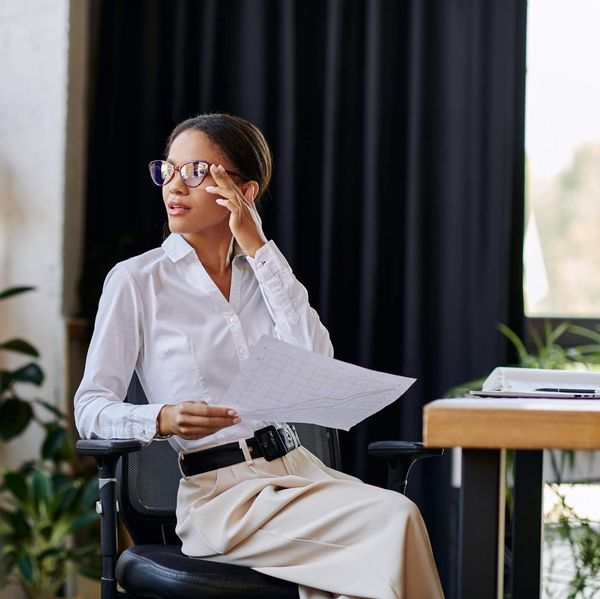Recently, several countries in the Caribbean have opened their visa programs to accept American citizens for up to a year. The governments in Barbados and Bermuda are allowing people who can work remotely to take up residence in their country. With the way things are going in the US, this has many citizens looking to escape temporarily and permanently.
According to the Bambridge Accountants, "5,816 Americans gave up their citizenship in the first six months of 2020 which is a 1,210% increase on the prior six months to December 2019, where only 444 cases were recorded." Currently, the only two countries participating are Barbados and Bermuda, but there could be other countries that follow suit soon. Each country is introducing a program that outlines specific requirements for anyone who wants to participate with the Barbados program which opened on July 12 and Bermuda's program which opened on August 1.
So, why is this happening?
In a press release statement by Prime Minister Mottley of Barbados, he expressed a desire to create an environment that faciliated work and play for extended periods of time amid the global pandemic. "Why?" he asked rhetorically before elaborating, "Because we know that this is one of the best places on earth to be and to remain because of the care we will take to protect the people of this nation and those who are here on the island with us."
The aim of this is to offer business owners some relief during these trying times. These countries are also looking to boost their technology communities and economies. Glenn Jones, Interim CEO of the Bermuda Tourism Authority also stated:
"This initiative paves the way for an infusion of economic activity for local businesses (and gives us) an opportunity to share our uncrowded open spaces and coveted island lifestyle with travelers from across the globe looking to work or study remotely."
As a remote worker, why should you consider this?
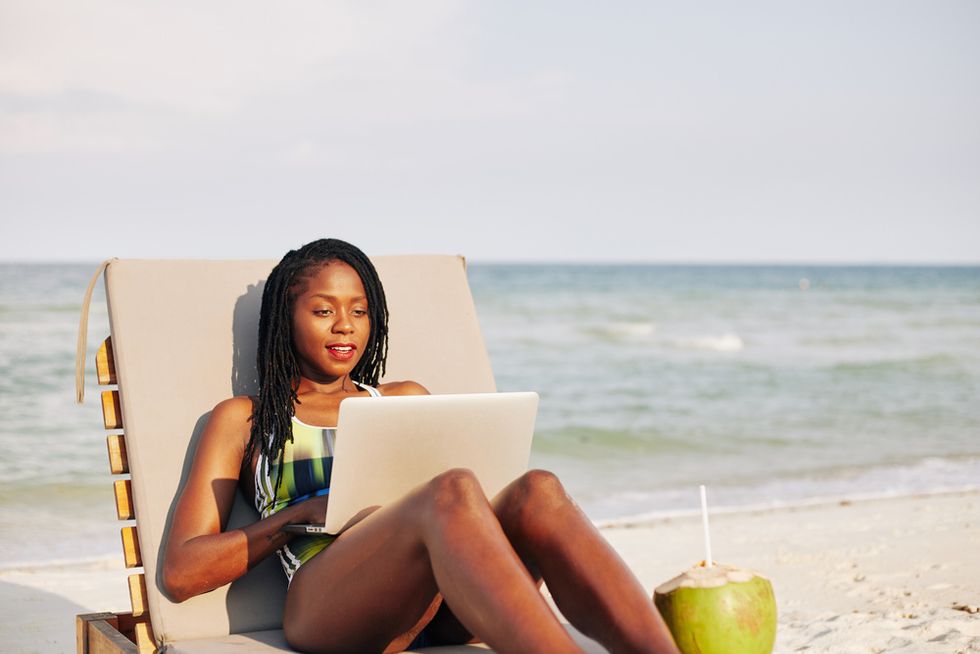
Shutterstock
Over the last few months of 2020, the pandemic has caused many aspects of daily living to shift by the second. Add to that, the fact that COVID-19 is one of two pandemics Black people are currently in the midst of, with the other being racism. Living in this constantly volatile terrain is taking a toll on the mental health of Black people in this country, creating many negative impacts. For many, spending a few months in a more stable environment can possibly provide a sense of normalcy and bring about some much-needed balance.
After the death of George Floyd and the increase in messaging around #BLM, companies went on a crusade to prove they have always been about diversity and inclusion. Many times this has resulted in said companies turning to the few people of color on their teams to answer for what has been painfully obvious for years: the lack of diversity in their work environment. All of the posturing and marketing has led many Black professionals to feel unnecessary exhaustion at work. In a recent article in Fortune;
"Working abroad, these executives say they left behind the fatigue that many described as routine for Black people in corporate America: the exhaustion brought about by being asked to solve your company's diversity issues; living by the unwritten rules that dictate how you present yourself at work; having to prove every day that you deserve to be in your role. Once abroad, with the weight of their companies behind them, many Black expatriates said they felt instantly valued and treated with a level of respect and deference from their colleagues they had not known in the U.S."
As companies shift to an online model to accommodate a safe work space for their employees, this may be an ideal time to consider an extended vacation. For parents, this presents a unique opportunity with schools also shifting over to online digital learning, opening up the possibilities to study, or work, from anywhere. Both Bermuda and Barbados offer great internet service that can support any remote work situation and online school accessibility. A quick Google search shows that the cost of living is 12.48% higher in Barbados than the US but 48.83% cheaper in rent according to Numbeo.
There are many options for housing that are near or on the beach through Airbnb, with local shops and markets in close proximity. If you are not interested in the year option to stay abroad, you can also look at the 90- or 180-day option. In Barbados and Bermuda, you can stay up to 90 days with no visa if you are looking for a shorter getaway. With these options you can take as long and as short as you need. You can also commute back and forth as you like while following reentry policies. Now is a prime opportunity to take that vacation that has been sitting on your bucket list.
If you want to apply, here’s what to expect:

Shutterstock
12-Month Barbados "Welcome Stamp"
- Individuals seeking to take advantage of the new visa initiative must be earning a minimum of $50,000 USD.
- Applicants must pass a character background check.
- Make sure all standard pre-requisite requirements for documentation are up to date when application is submitted. If you are planning on staying for up to 12 months you will be required to have the necessary insurance.
- You can take a spouse as well as family members.
- Fees:
- Individual: Fee of $2,000 USD
- Family Bundle: Fee $3,000 USD (Allows more than one member of the family to work remotely)
- If you are approved for the 12 Month Barbados Welcome Stamp, you will be able to re-apply at least two more times to extend your visa.
12-Month Bermuda "Work From Bermuda Certificate"
- Complete the application with the application fee of $263 USD.
- Complete the Bermuda Travel Authorization process online. A $75 USD fee is required and this will include the cost of the PCR COVID-19 testing in Bermuda.
- Children that are 9 years old and younger do not have to be tested at any point and will be charged a reduced fee of $30 for Travel Authorization.
- Children 10-17 must receive parental consent to be tested. If consent is denied, the young traveler must quarantine for 14 days on arrival.
- Visitors must take a certified PCR COVID-19 test, 72 hours of departure, but no more than seven days, and obtain a negative result. This applies to adults and children aged 10 and up. Children who are 9 years old and younger are exempt but they are also subject to their adult travel companion's quarantine.
- Visitors must wear face masks when traveling to the departure airport.
- Visitors must wear face masks and practice physical social distancing at the departure airport.
Join our xoTribe, an exclusive community dedicated to YOU and your stories and all things xoNecole. Be a part of a growing community of women from all over the world who come together to uplift, inspire, and inform each other on all things related to the glow up. We drop xoNecole events and special opportunities into our Tribe first.
Featured image by Shutterstock
- Estonia, Barbados, Bermuda & Georgia Announce Digital Nomad ... ›
- 9 countries welcoming long-term visitors to live and work remotely ... ›
- How COVID-19 Could Usher in the Era of the “Digital Nomad Visa” ›
- Bermuda to allow non-residents to work remotely on island | CBR ›
- EU adds UAE, Bermuda to expanded tax haven blacklist ›
- EU adds UAE, Bermuda to expanded tax haven blacklist ›
- Want To Live And Work In Paradise? 7 Countries Inviting Americans ... ›
- Why Work From Home When You Can Work From Barbados ... ›



